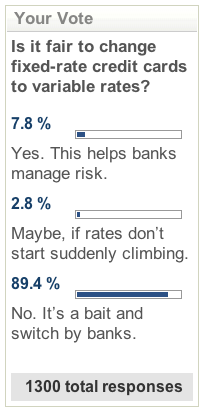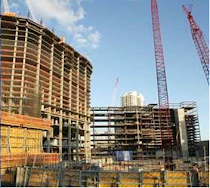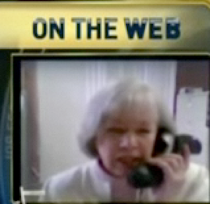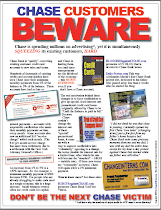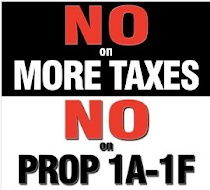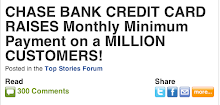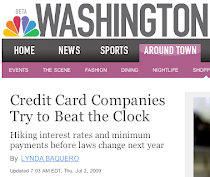While 25% of all homeowners are now "upside down" on their home mortgages, that also means that 75% of homeowners are not upside down. Of the remaining 75% homeowners, probably another 25% have some, but not much equity built up in their home.
However, this still leaves 50% of all homeowners who probably still have a significant amount of equity in their home. Homeowners with substantial home equity who are presently out of work are being IGNORED by the Barack Obama administration and the banksters, and it is creating a very uncomfortable situation.
Imagine a homeowner that is in their 50's and who spent 20 plus years paying off their home mortgage that they originally purchased for 100,000 dollars (along with a whole lot of interest payments mixed into their monthly mortgage payments as well), and now their home is worth 360,000.
After the home was paid off a few years ago, the homeowner took out a home equity line of credit, called a HELOC, for 60,000 to help pay for their kids education, make some necessary home improvements, and deal with some unexpected medical bills.
This homeowner still has 300,000 dollars worth of home equity on their 360,000 dollar home. Bad news hits, the homeowner worked in the newspaper industry and their job has disappeared. This person is still 5-10 years away from retirement, but rather than jump into another job right away, they have taken in their elderly parents and will be responsible for transporting both of their parents to all of their medical visits, including hospital visits and staying overnight at the hospital if necessary.
This person wants to take time to figure out what kind of business they can run from home because they don't want to be gone all day with two elderly parents in the house.
Unfortunately, the homeowner did pay a price when they paid off their home, they never really were able to create substantial savings because they instead focused on paying off their home mortgage.
So now we have a homeowner with no mortgage, 300,000 dollars home equity on a 360,000 dollar home, no job at the moment, and they want to take longer to find a job because they want to find something they can do from home so they can monitor their parents.
Being cash poor, job poor, but home equity rich, this person asks their bank for a HELOC increase from 60,000 to 100,000. The bank asks about their income situation and the homeowner honestly answers they are in between jobs and won't have another job for another year.
If the bank agrees to raise the equity line, the homeowner will have an additional 40,000 dollars to spend, plus an additional 260,000 in untapped home equity. THE BANK IS IN NO DANGER OF LOSING ANYTHING ON THIS INCREASE IN THE LINE OF HOME EQUITY. If the homeowner were to eventually default on the entire home equity line of 100,000, the result would be the bank has possession of a home worth 360,000 dollars that only had 100,000 thousand dollars taken out.
Here is what I find strange. What the homeowner is basically requesting of the bank is a conversion of unsecured debt into secured debt (home equity line). For years consumer advocates have been advising against converting unsecured debt into secured debt since secured debt means the bank can sell off your assets to collect on your debt.
However, unsecured debt is more difficult for banks to collect against because what was purchased on credit is generally not considered an asset worth reselling.
The bankster industry has gotten so backwards that rather than embrace a homeowner's willingness to convert their unsecured debt into secured debt that is backed by actual equity in a home, the bank would rather REJECT the request to raise the home equity line.
Keep in mind that the homeowner is going to use an increase in the HELOC to keep paying their monthly bills. A SIGNIFICANT portion of their monthly bills includes sending checks to the banks for monthly credit card payments, checks to insurance companies (closely related to the banking industry), another check towards the monthly payment on the equity line (again back to the bank), a check may go towards a payment on the car (once again financed by a bank somewhere). Even checks made payable to the local water and power company usually help the bottom line of cash starved cities who usually oversee water and power!
Do you see the part here that doesn't make much sense. The homeowner is basically parceling out their SECURED ASSET, built up home equity that may have taken as long as 30 years to build up, so they can be responsible and keep paying their monthly bills.
The homeowner is actually converting their unsecured debt into secured HELOC debt while NOT endangering the banks ability to collect on the overall HELOC debt because the home is still worth much much more than what the HOMEOWNER is borrowing against. The borrowed HELOC is easily recoverable by the bank should the homeowner default at a later date.
If the banks won't work with people who have built up a lot of home equity but have no job at the present time, perhaps the banks stand to gain by simply prematurely suffocating a customer financially by not letting them gain access to the secured wealth they built up through years of making their mortgage payments on time.
The too big to fail banking behemoths that were recently bailed out by the taxpayers are not allowing taxpayers to access their own homeowners sweat equity when it becomes necessary, even when an increase in a home equity loan poses virtually no financial risk to the bank and actually benefits all the vendors the homeowner can keep paying.

